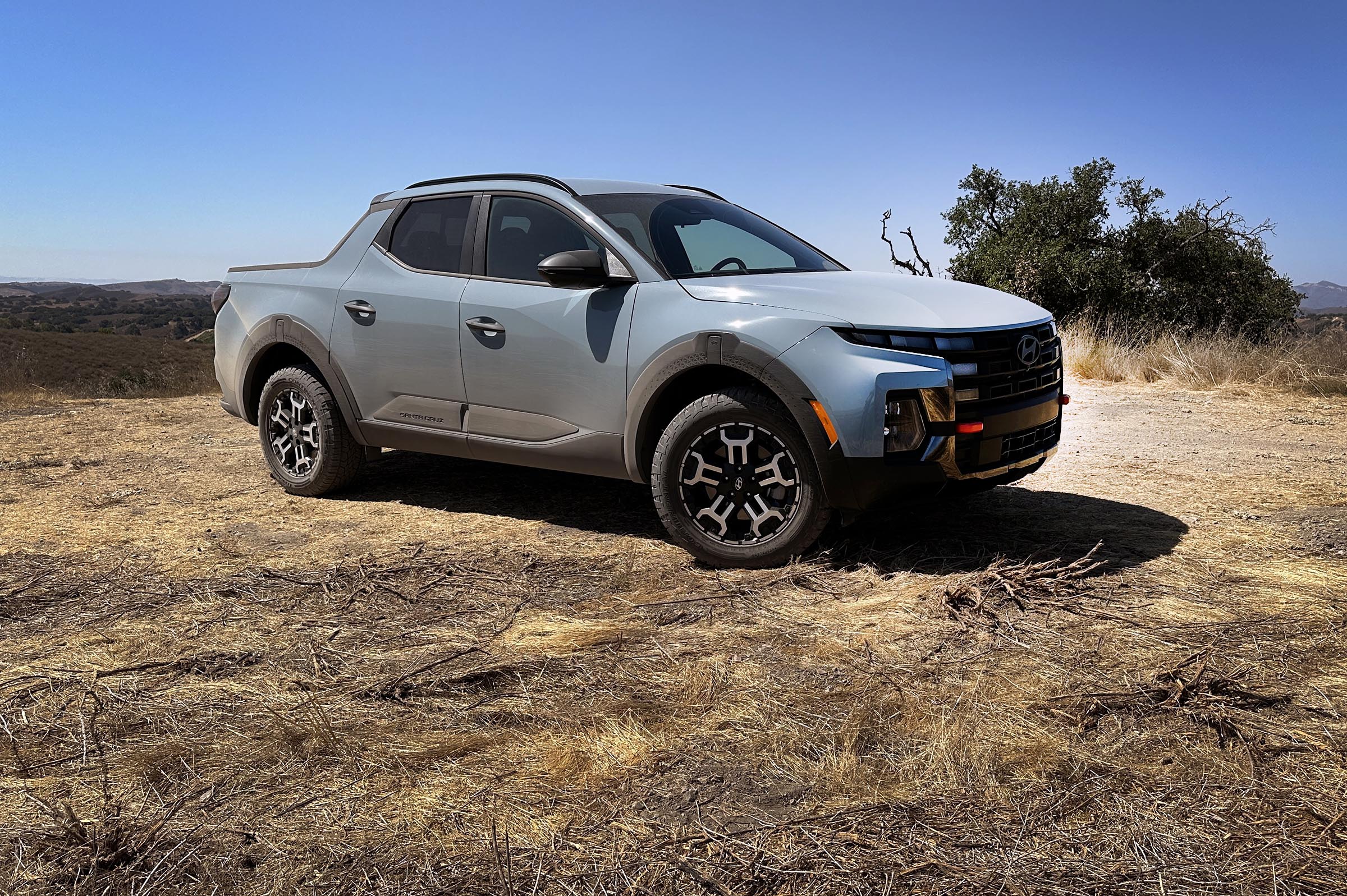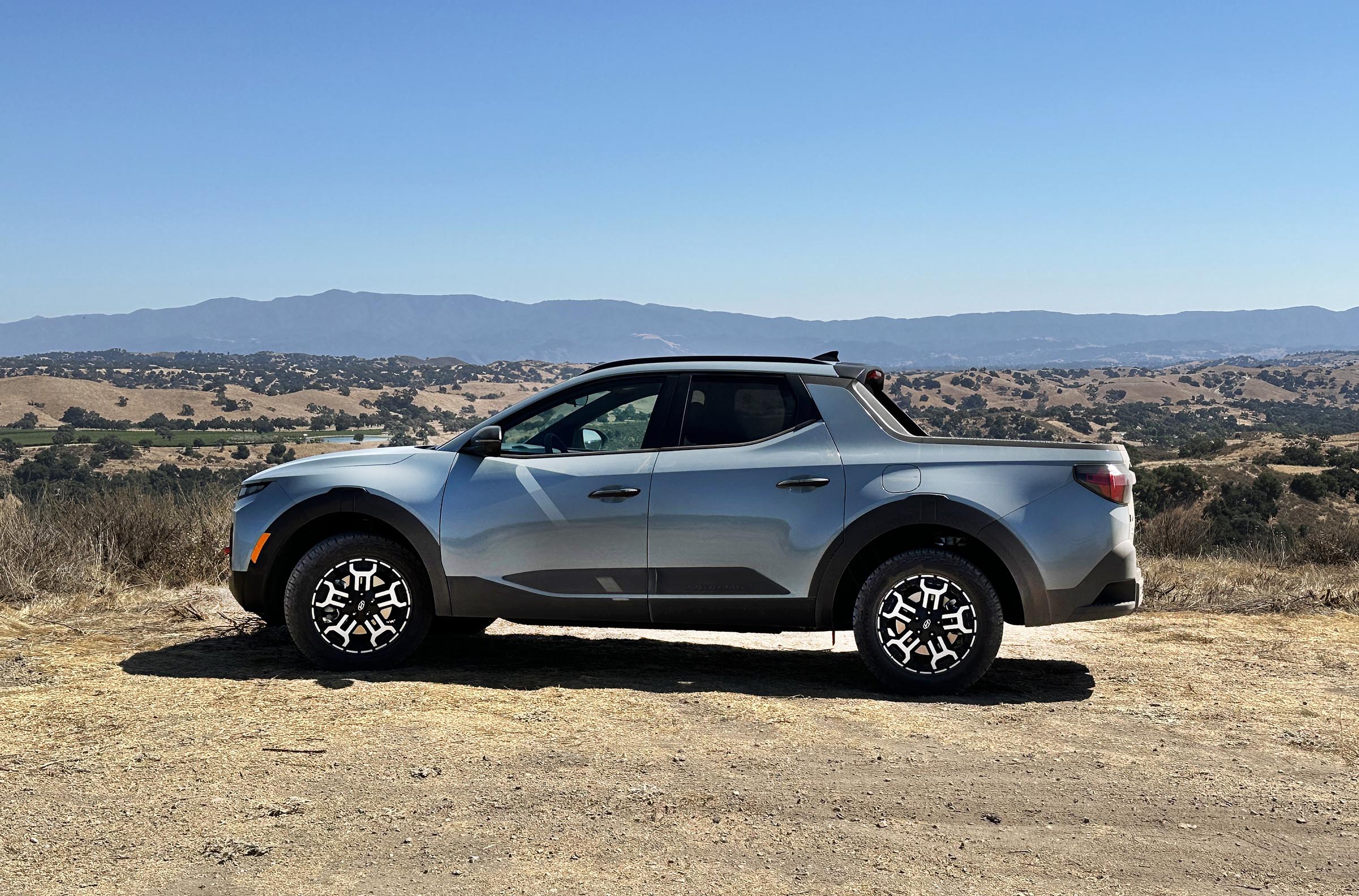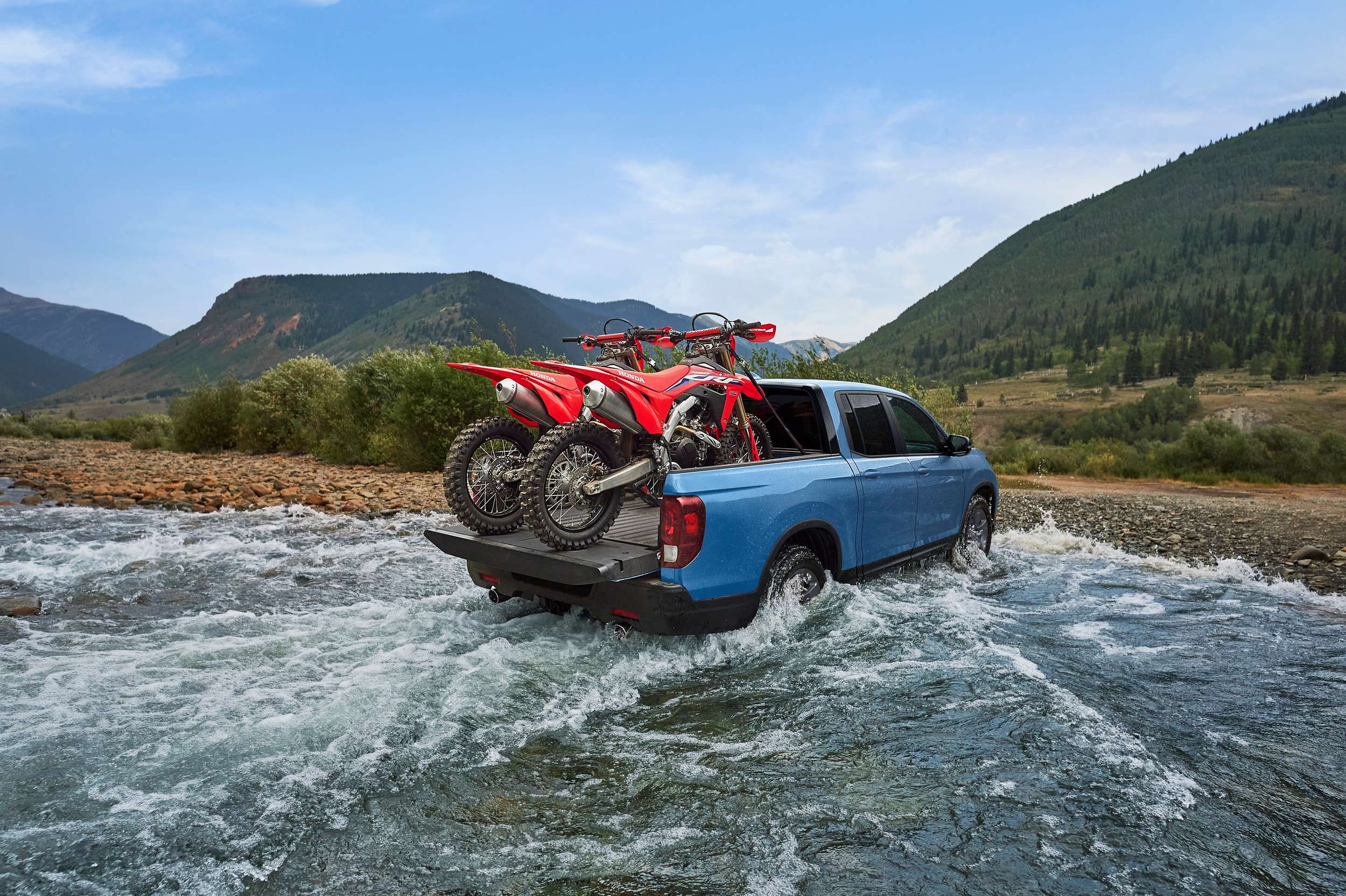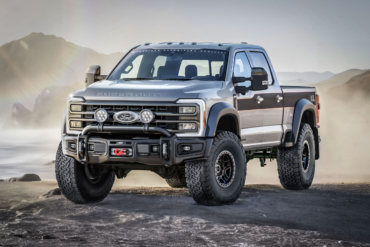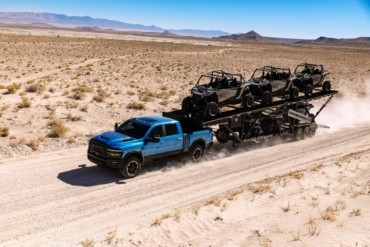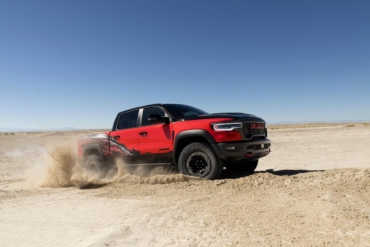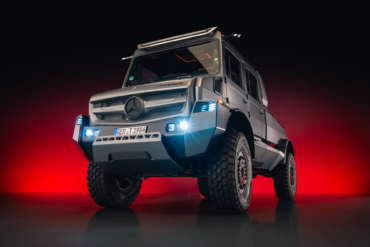With the launch of the 2022 Santa Cruz, Hyundai entered into uncharted territory. It was not only the automaker’s first pickup but also one targeting a market segment that had long been neglected by the auto industry.
Hyundai wasn’t the only brand targeting what manufacturers like to call “white space.” The compact Santa Cruz went up against the equally new Ford Maverick. But the two automakers couldn’t have taken more drastically different approaches.
Maverick was essentially a downsized take on Ford’s bigger truck lines — albeit with a few creative twists — while Hyundai delivered a distinctively styled urban warrior. Think Chevy El Camino for the Millennial era.
Santa Cruz has generated plenty of buzz, if not quite the sales of its Ford rival. But the Korean carmaker is betting that it can increase demand with the mild update on tap for the 2025 model year.
In short: The 2025 Hyundai Santa Cruz is more than just the classic “mid-cycle refresh.” It builds on the unique design and features that have generated plenty of buzz among young buyers looking for the functionality of a compact pickup and the flexibility of an SUV combined into an affordable, fun-to-drive package.
- Engine: 2.5L na inline-4 or 2.5L turbo-4
- HP/torque: 191/181 base engine; 281/311 for turbo-4
- Transmission: 8-speed automatic, na inline-4; 8-speed wet dual-clutch, turbo-4
- Fuel economy: 2.5L turbo-4: 18/26/22 FWD – XRT; 19/27/23 Limited; 2.5L na inline-4: 22/30/25 FWD; 21/29/24 AWD
- Towing: 3,500 lbs. max: 2.5L na inline-4, 5,000 lbs. max: 2.5L turbo with XRT AWD
Pros
- Great design
- Affordable
- Blends some of the best features of a pickup and an SUV
- Redesigned IP with curved digital screen — and more traditional controls
Cons
- Cramped rear seating
- Too much interior plastic
- 4-foot bed limits cargo capabilities
2025 Hyundai Santa Cruz Review
It took nearly 6 years for Hyundai to translate the wildly popular Santa Cruz concept into a production model. The good news is that it’s taken just another 3 years for the automaker to launch a mid-cycle update that sharpens its distinctive design while addressing some of the original model’s flaws.
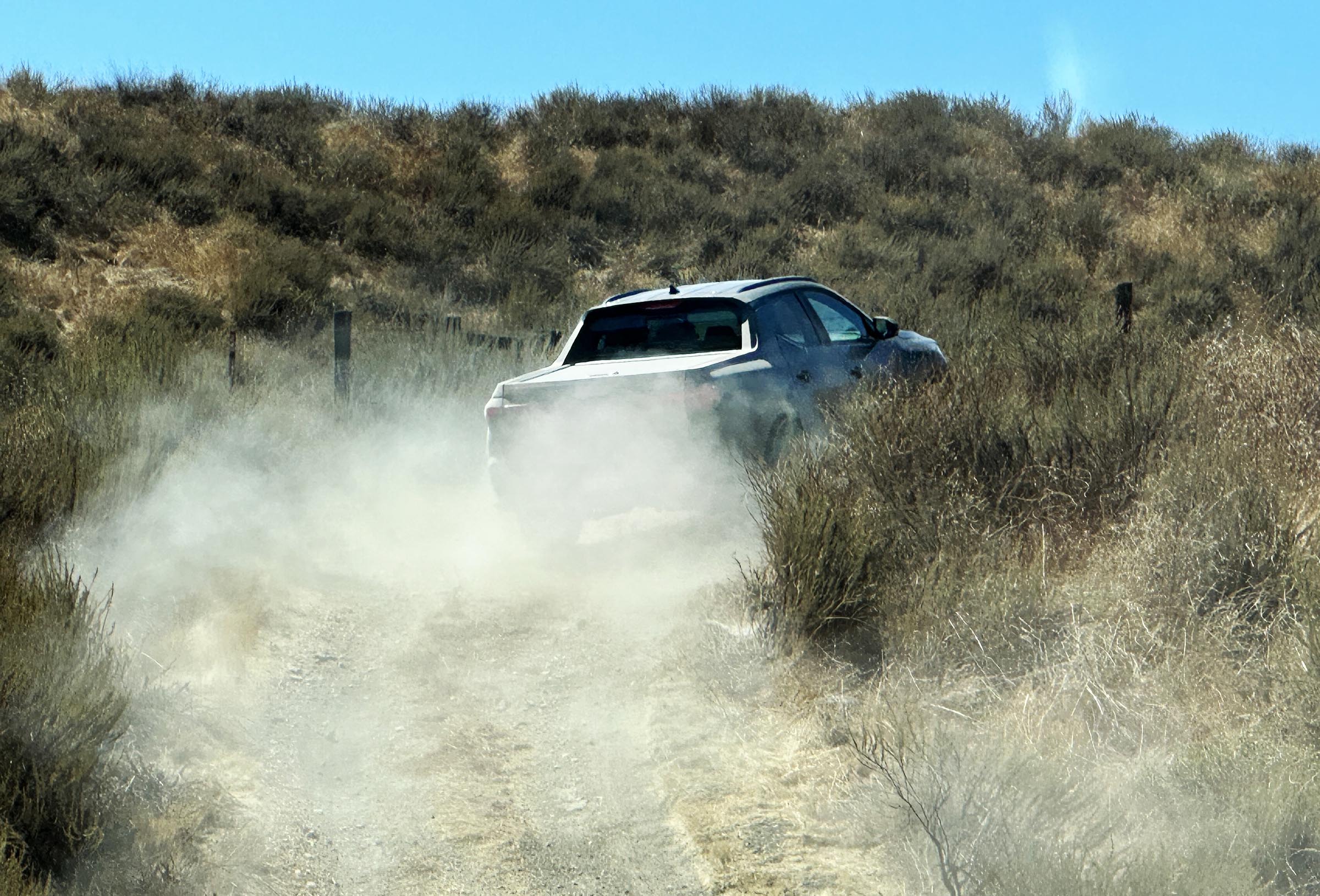
Those who’ve just discovered the Santa Cruz think of it as a “Sport Adventure Vehicle” — or so declares Jose Munoz, CEO of the Korean automaker’s North American operations. Sharing much of its underpinnings with the more familiar Hyundai Tucson — which also gets an update for 2025 — Santa Cruz blends elements of that compact SUV with a short pickup bed.
The design has some inherent compromises but offers additional flexibility that can appeal to young buyers on a budget looking for a vehicle that can maneuver city streets during the week and then head out to the countryside for weekend adventures.
What’s New for 2025: Design
The 2025 Hyundai Santa Cruz gets more updates than you’d typically expect of a vehicle first introduced so recently.
That begins with a number of tweaks to its design. As Munoz suggested when the 2022 Santa Cruz debuted, this “is a vehicle that completely shatters conventional design.” It picks up on the “parametric pixel” design language Hyundai has been rolling out across its lineup, including the angular side panels and the stacked lighting that frames the multilevel grille. The overall look of the front end is now more vertical and muscular.
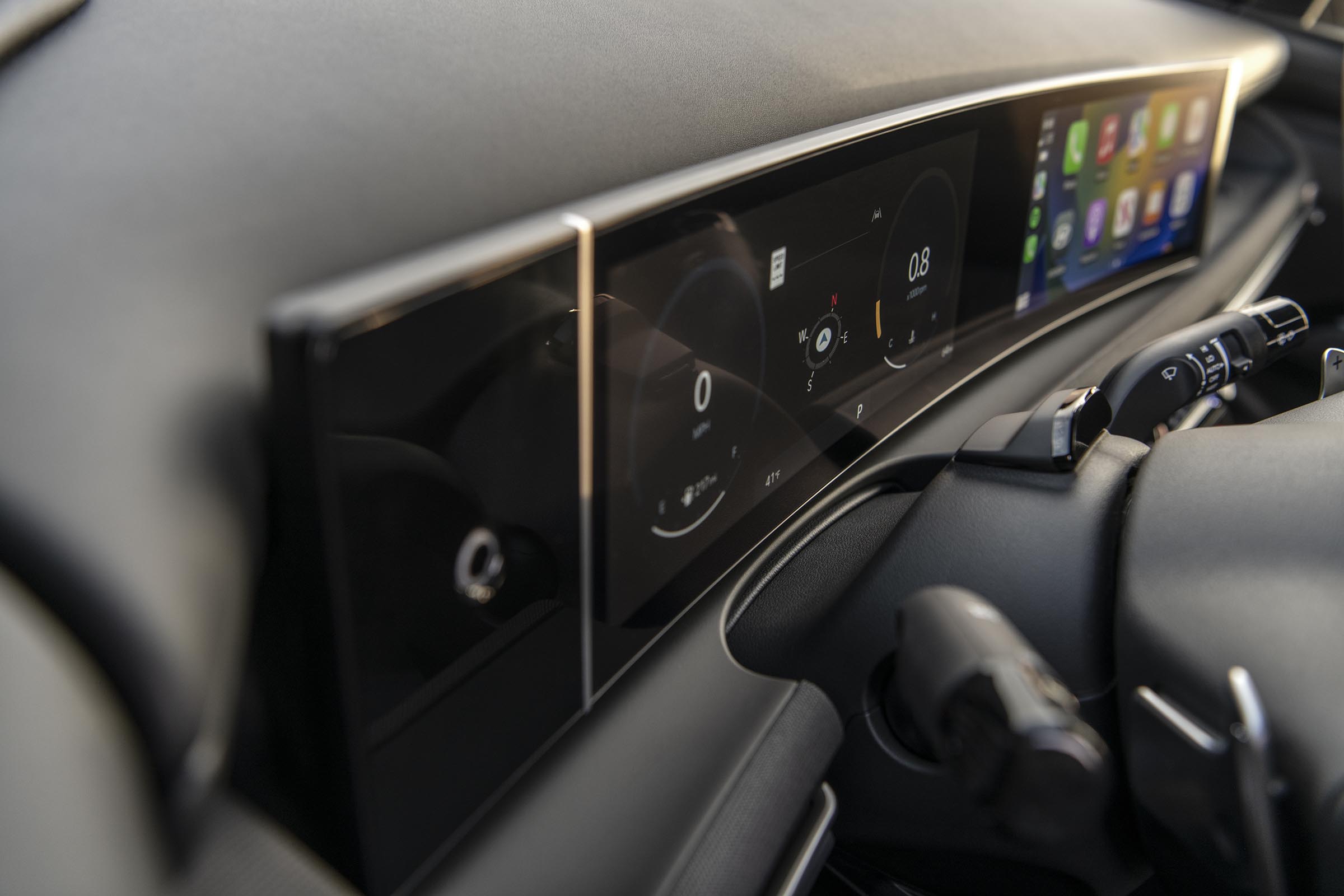
Santa Cruz’s cabin now features a curved display, including a standard 12.3-inch touchscreen, as well as an optional 12.3-inch gauge cluster. The automaker has also listened to buyers and shifted to more conventional controls for climate and some other vehicle functions. Add new wheel designs and some additional upgrades to the XRT package — which we’ll get back to shortly.
What’s New for 2025: Technology
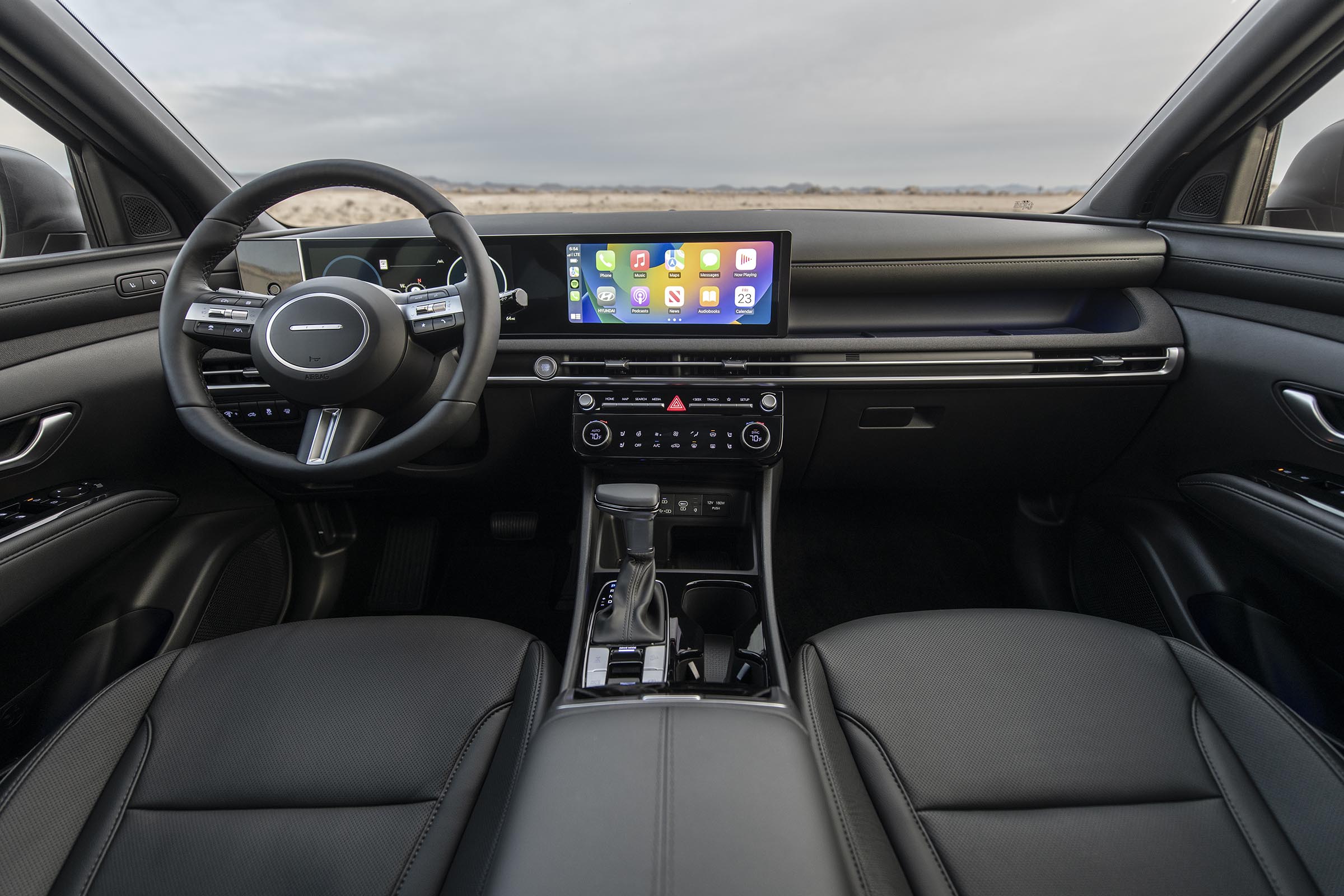
The addition of that optional 12.3-inch gauge cluster is, in itself, big news for the new model year, something you might not expect on such an affordable vehicle. But many buyers will be just as excited to see Hyundai add more conventional controls for climate and other functions so you don’t have to go swiping through various screens to adjust cabin temperature or turn off seat heaters when your butt starts to burn.
A focus on technology makes sense, considering the sort of buyers Hyundai has targeted with Santa Cruz. And the list of updates goes on to include:
- Now-standard Apple CarPlay and Android Auto
- Improved smartphone-style over-the-air updates
- Upgraded Digital Key 2 (smartphone as key system)
- Fingerprint scanner
Add more USB-C ports, updated Bluelink+ Connected Car technology, and other digital features.
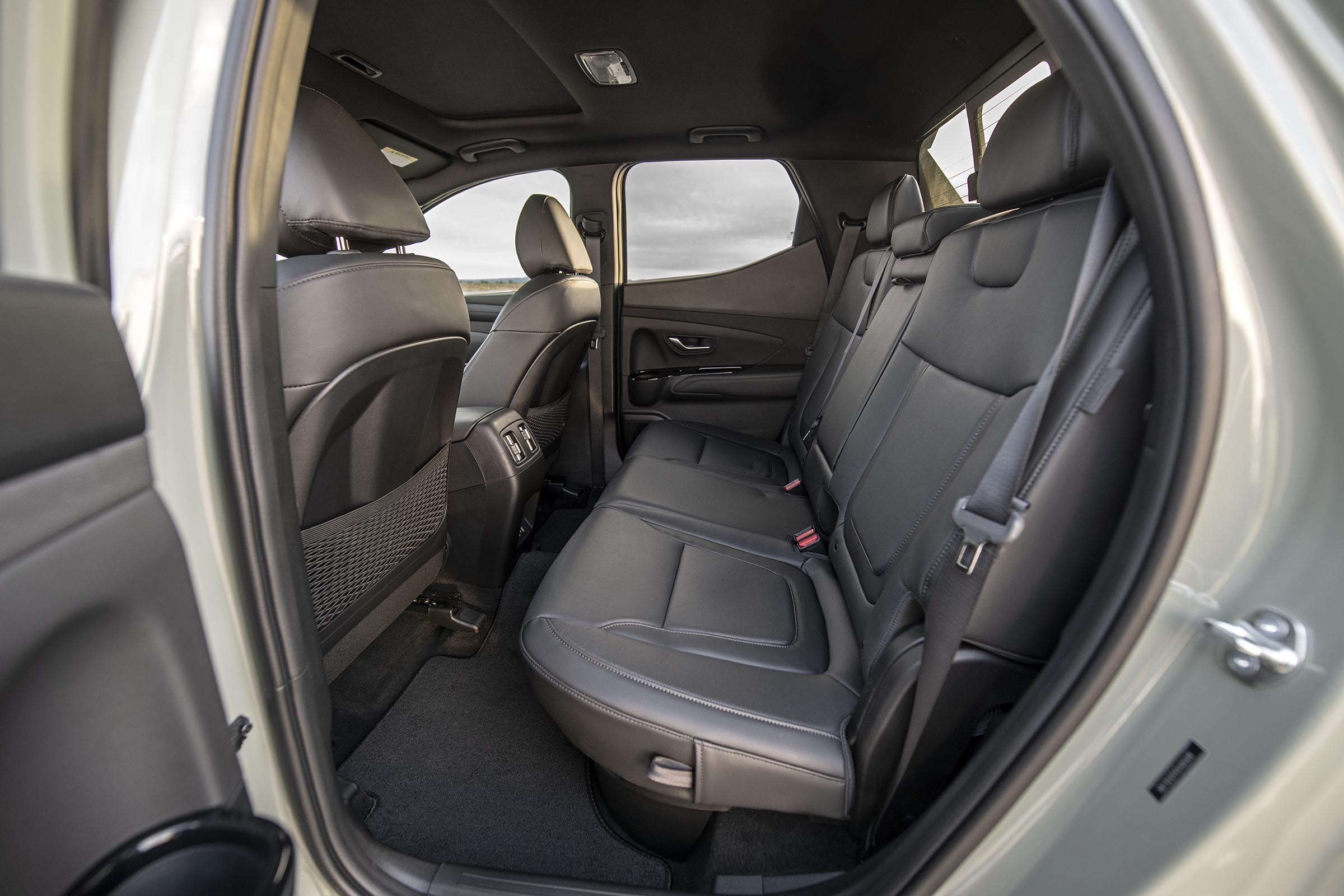
Santa Cruz XRT
Hyundai offers the little pickup in several different trim, including the upscale Limited package, as well as the Santa Cruz XRT. Those three letters are starting to show up across the Hyundai lineup and are meant to signal more off-road-ready models. There’ll even be a new version, the Ioniq 5 XRT, of the carmaker’s little EV for 2025.
With the Santa Cruz XRT you get newly relocated tow hooks for the 2025 model year, along with better protection for stones and other obstacles, especially around the rear quarter panels.
The 2025 XRT package adds new bumpers, front and rear, an exclusive grille, a slight improvement in its approach angle, and new technology that includes a Surround View Monitor and Blind Spot Monitor. Add wrench-inspired 18-inch wheels shod with 245/60R 18-inch all-terrain tires.
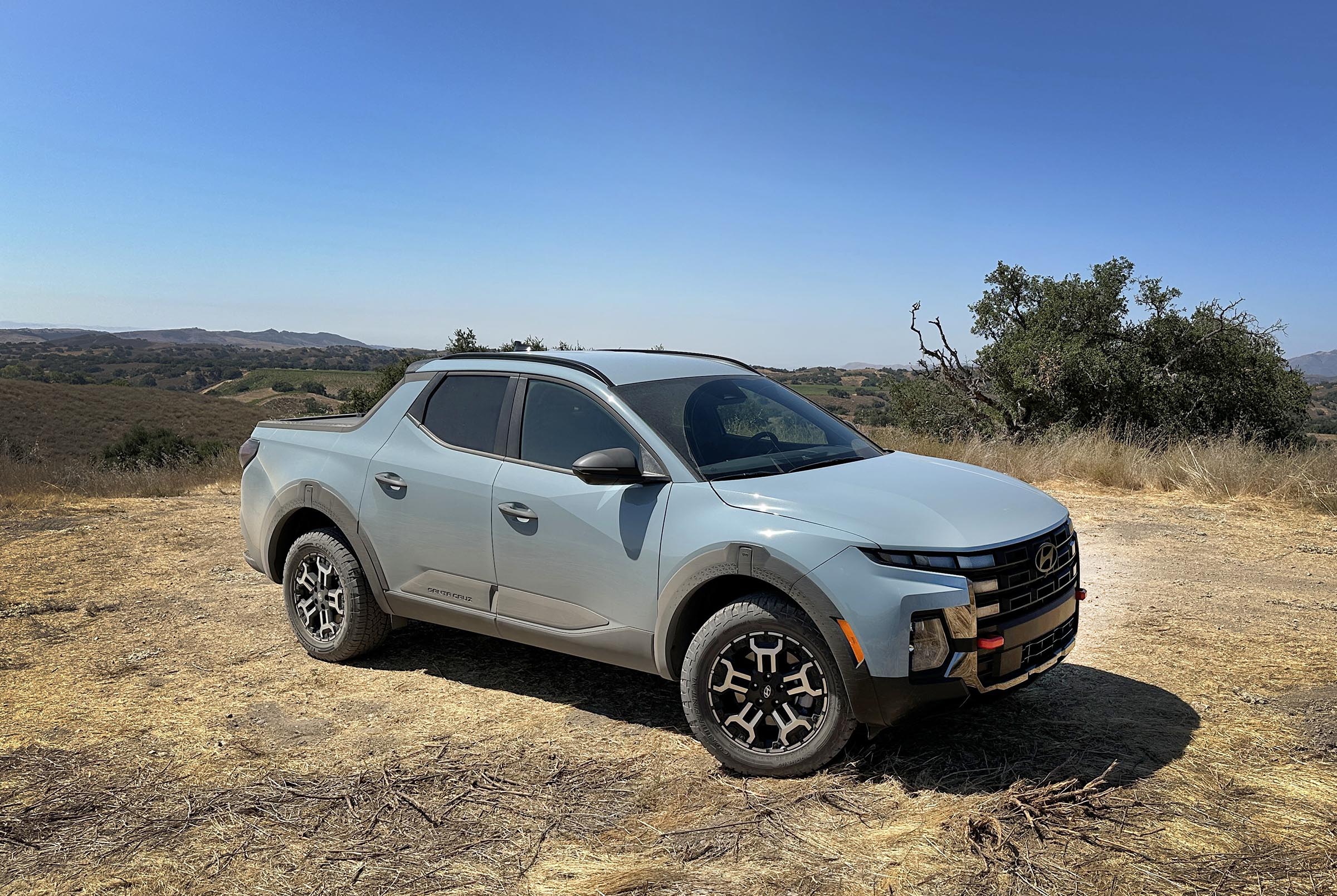
First Drive
Hyundai invited me out to Santa Barbara late last month to check out several of its new and updated 2025 models, including the Tucson, Ioniq 5 XRT, and the Santa Cruz. Disappointingly, I was given only part of the day to take the compact pickup out for a test drive, an XRT package on a long off-road loop.
The reality is that the Santa Cruz XRT is really best described as an off-road-light package. You won’t take it to Moab or out on the Rubicon Trail — unless you’ve got a friend with something a lot more rugged. The Korean pickup simply doesn’t boast enough ride height and underbody protection for such extreme trails.
That said, it’s surprisingly competent when you’re dealing with less robust situations. It quite readily handles the sort of gravel, dirt, and occasional mud and sand conditions most folks will likely encounter.
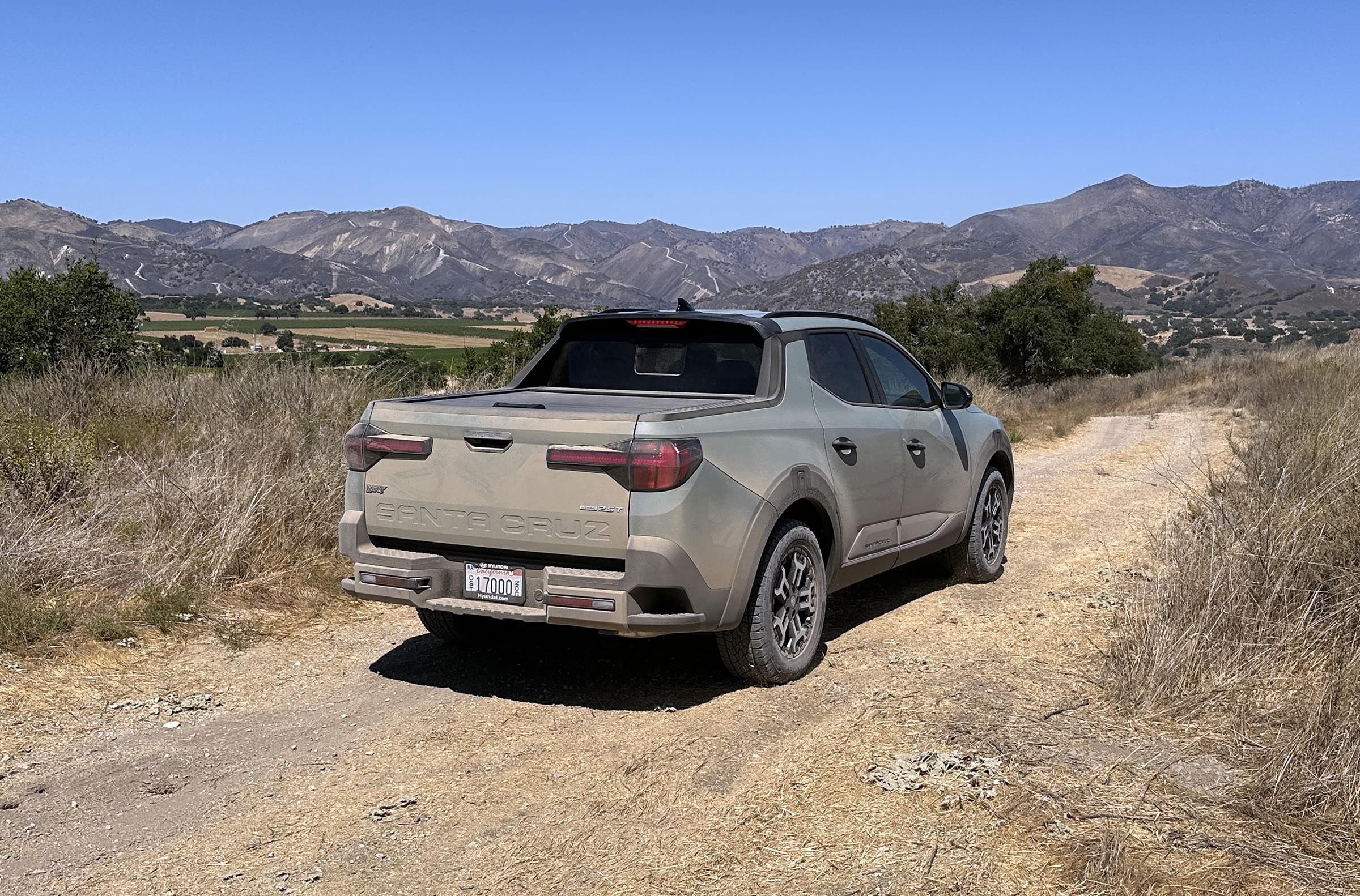
Around Town
The reality is that most Santa Cruz buyers will roll over pavement most of the time. But there are some welcome features, whichever version of the pickup you opt for. The crossover measures just short of 196 inches, nose-to-tail, with a 118.3-inch wheelbase. It stands about 67 inches in height and has a width of 75 inches. That makes it nicely maneuverable, even in tight urban settings.
As for the cargo bed, it measures 4 feet in length, about 7 inches shorter than Maverick’s. Sadly, Hyundai’s product development team couldn’t come up with a way to put the bed extender of the Santa Cruz concept into production.
You do get a bit more putting down the tailgate, enough to handle most bikes or a small kayak if you tie it down carefully. It’s particularly good for hauling around camping gear or, if you prefer, some finds from the antique shop.
On pavement, the ride is more comfortable than many other similarly priced vehicles. For those up front, anyway. You’ll have to make apologies to anyone stuck in the back row, with its dearth of legroom and near-vertical back cushion.
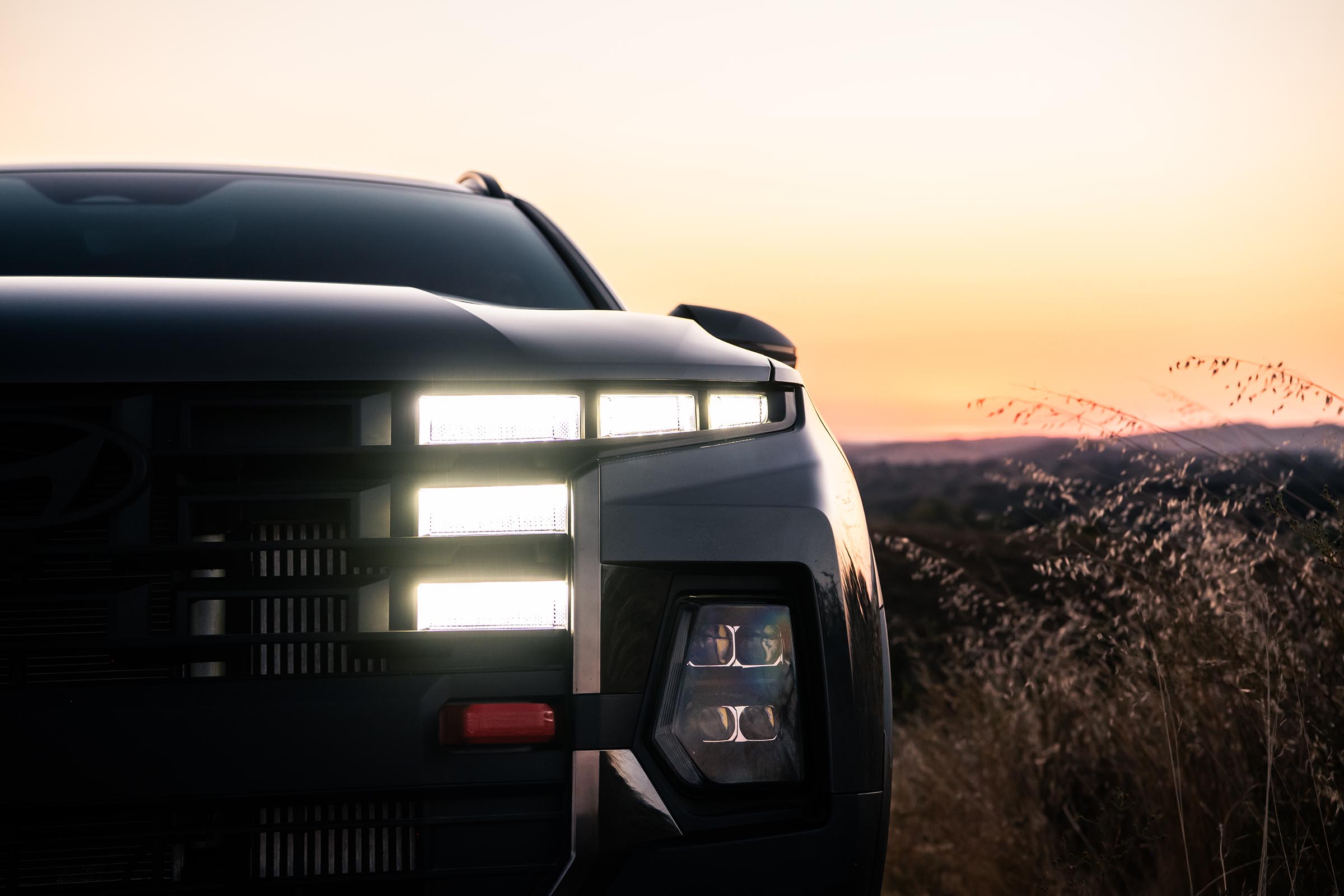
Powertrain
As Ford has done with Maverick, Hyundai offers two powertrain options for Santa Cruz. Unfortunately, that doesn’t include a hybrid — which is perhaps the biggest selling point for the Detroit compact pickup.
Those on a tight budget might opt for the base engine package, a 2.5L inline-4 making an acceptable 191 horsepower and 181 pound-feet of torque. Paired with an eight-speed automatic, it’s available in either front- or all-wheel-drive.
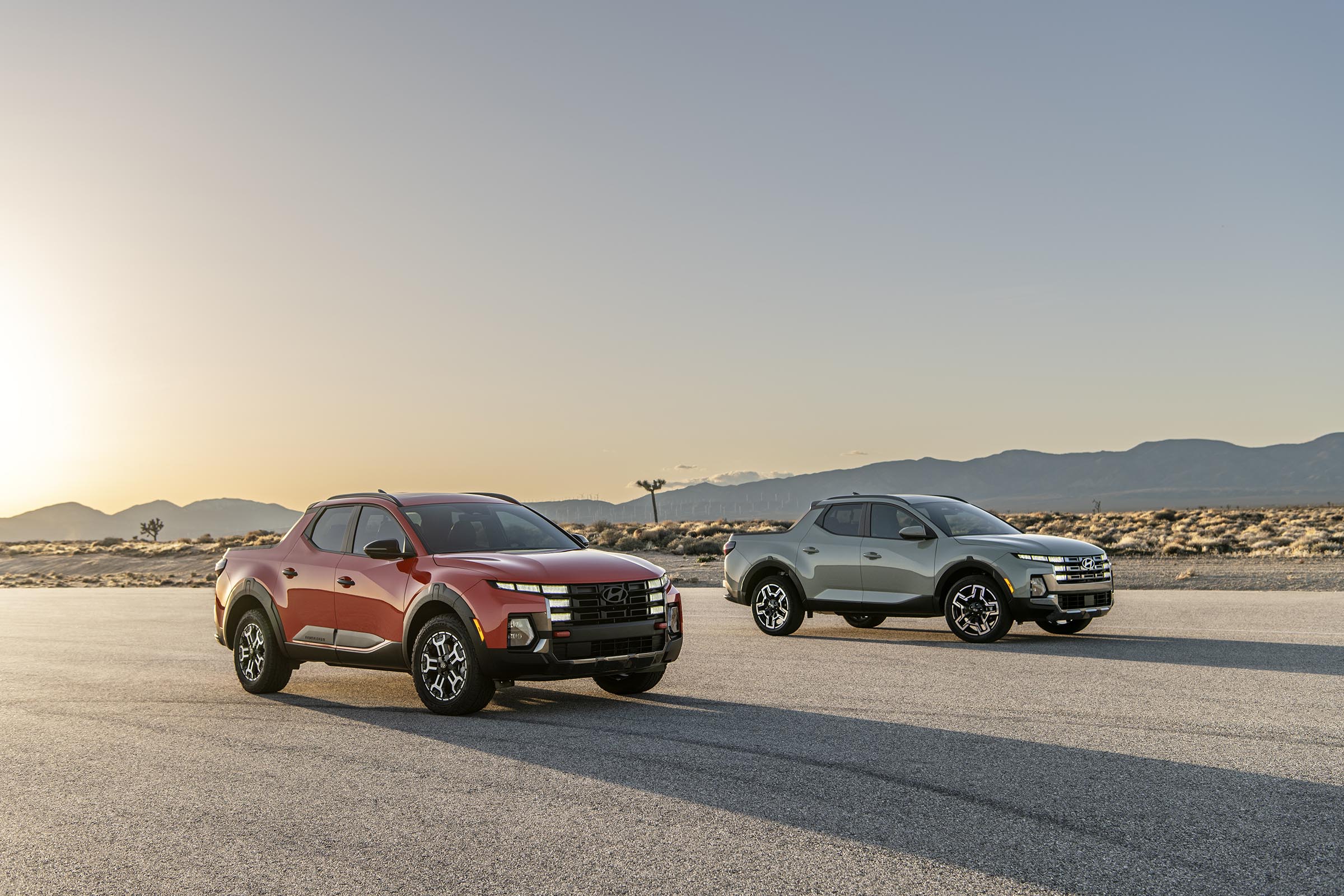
The Limited and XRT packages come with a 2.5L turbo-4 paired with an eight-speed wet dual clutch. Only offered in AWD, it delivers a real bump up to 281 horsepower and 311 pound-feet of torque.
Both powertrains are carried over, and based on my earlier experience, the naturally aspirated package can best be described as a bit anemic. The turbo-4 makes a big difference, especially considering the unloaded Santa Cruz weighs in at a relatively modest 4,100 pounds — give or take, depending upon trim.
The downside? The turbo delivers just 18 mpg city, 26 highway, and 22 combined with the XRT. Add 1 mpg to each number for the Limited. The base 2.5L engine doesn’t do all that much better: 22/30/25 on front-drive models and 21/29/24 with AWD.
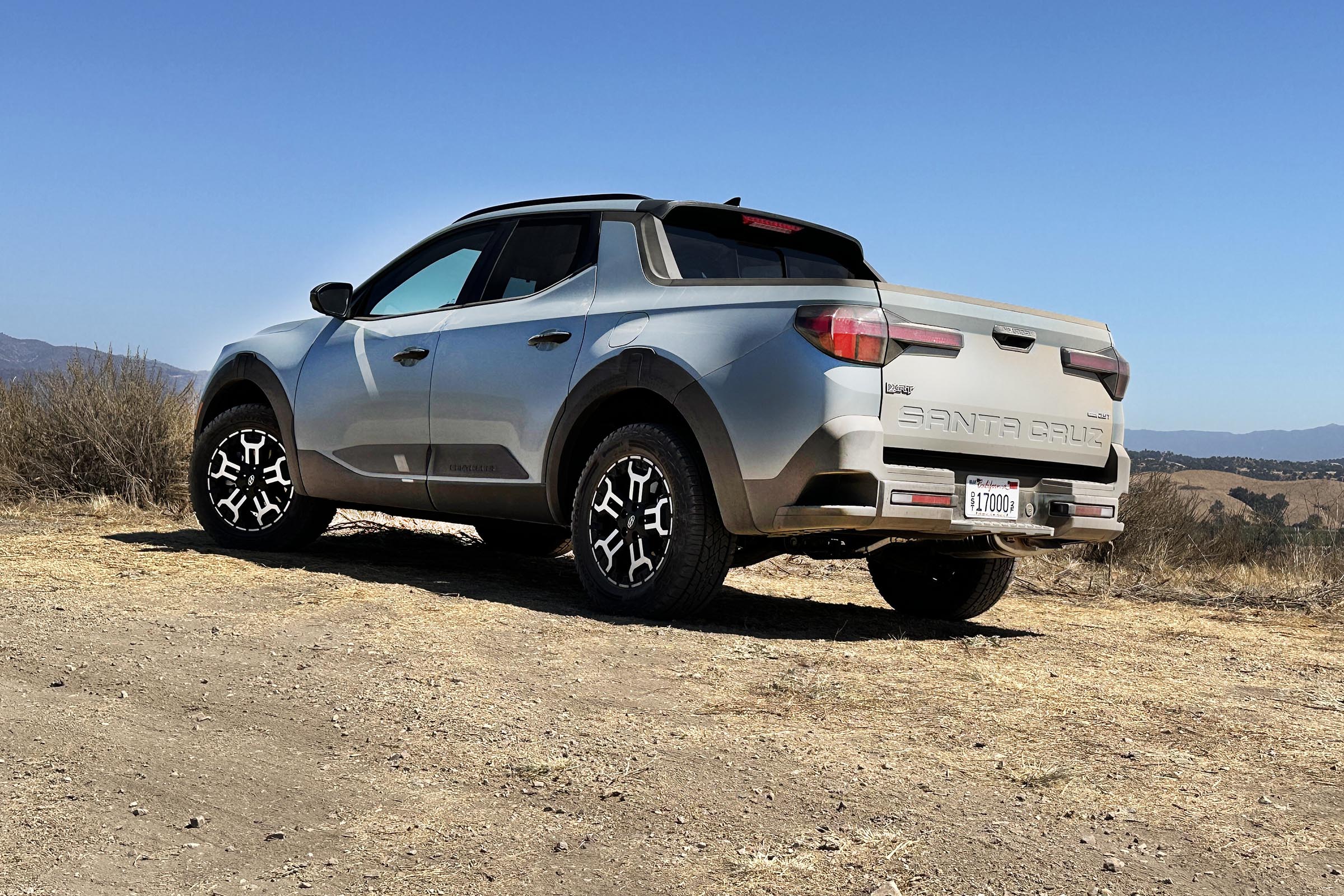
2025 Hyundai Santa Cruz Wrapup
Considering the 2025 Ford Maverick can deliver as much as 42 mpg city with the hybrid package, that’s a real disadvantage for the Hyundai pickup. The Korean carmaker has been rolling out gas-electric options for the majority of its line-up, so lacking one here seems an odd gap.
More broadly, there’s a lot to like about the 2025 Hyundai Santa Cruz, starting with its price tag. The base SE with the naturally aspirated 2.5L FWD powertrain starts at $28,500. The XRT with the turbo AWD drivetrain comes in at $40,000 on the nose, the Limited pushing to $42,500. (Those figures exclude the $1,395 delivery fee.)
Santa Cruz is stylish. It has good cargo and towing capacity for its class. And, well, it’s just plain cool to look at — a lot more so than the blocky Ford Maverick.
While I expect the Detroit pickup will continue to handily outsell its Korean rival, the upgrades for 2025 should help increase the appeal of the Santa Cruz, especially for urban buyers.
